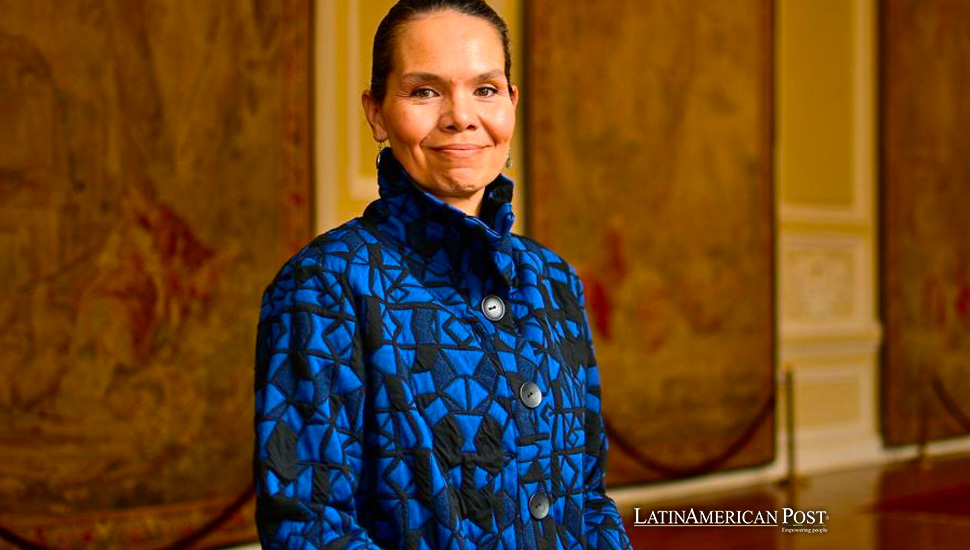Colombia’s Sports Minister Resigns Amid Panamerican Games Controversy and Regional Echoes

Astrid Bibiana Rodríguez, Colombia’s Sports Minister, has resigned following Barranquilla’s loss of the 2027 Panamerican Games, highlighting issues of sports management and financial commitment that resonate across Latin America, raising questions about regional preparedness for international events.
Political and Sports Upheaval
In a move that has sent ripples through the Colombian political and sports community, Astrid Bibiana Rodríguez, the country’s Minister of Sport, submitted her resignation to President Gustavo Petro. This decision comes in the wake of the Panamerican Games being pulled from Barranquilla. This decision has not only cast a shadow over Colombia’s ability to host major sporting events but also brought similar challenges faced by other Latin American nations to the fore.
Rodríguez’s resignation letter, dated February 15, 2024, cites previous discussions with President Petro and expresses her desire to step down without delving into the specifics of her departure. However, the context of her resignation is deeply entwined with the controversy surrounding the loss of the 2027 Panamerican Games, a significant blow to Colombia’s sporting ambitions and national pride. The event’s governing body, Panam Sports, rescinded Barranquilla’s hosting rights due to the city’s failure to meet financial obligations. Specifically, two missed payments totaling $8 million for organizational rights.
This situation is not unique to Colombia. Across Latin America, countries have faced similar issues, struggling with the financial and organizational demands of hosting international sporting events. The challenges range from budget overruns and construction delays to political turmoil and economic instability, all of which can jeopardize the successful execution of such events.
In the case of Barranquilla, the city managed to make an initial payment of over $2 million. Still, subsequent payments were delayed, a situation attributed to the administration of former President Iván Duque (2018-2022) and the current Petro government. The failure to complete these payments, due in January, led Panam Sports to consider alternative game hosts, with Asunción and Lima emerging as the new candidates.
Broader Impact on Latin America
The controversy surrounding the Panamerican Games in Colombia reflects a broader regional pattern. Latin American countries have a rich history of hosting international sporting events, from the Olympic Games in Mexico City (1968) and Rio de Janeiro (2016) to multiple Panamerican and Central American Games. These events are often seen as opportunities to showcase national culture, infrastructure development, and sporting talent on the world stage. However, the economic and political realities of the region can sometimes undermine these goals, leading to situations like the one faced by Colombia.
The repercussions of such failures are not limited to the immediate financial and logistical setbacks. They also have the potential to impact the country’s international reputation, deter future investment, and demoralize both athletes and the broader sporting community. The resignation of a sports minister in the aftermath of such a controversy is a significant indicator of the internal turmoil and accountability that can arise from these challenges.
Looking across the region, it’s clear that Colombia’s experience is not an isolated incident. Argentina, for example, has faced economic crises that have affected its ability to fund sports programs and infrastructure. Brazil’s hosting of the 2014 FIFA World Cup and the 2016 Olympics was marred by concerns over excessive spending, corruption, and the legacy of the facilities. Despite its economic and political crisis, Venezuela has seen a decline in its sports infrastructure and athlete support.
These examples highlight Latin America’s complex interplay between sports, politics, and economics. The ability to successfully host international sporting events requires financial resources, political stability, strategic planning, and a commitment to long-term legacy planning. Failures in these areas affect the immediate event and can have lasting implications for the country’s sporting culture and international standing.
Reflection and Cautionary Tale
As Colombia moves forward from this episode, the resignation of Astrid Bibiana Rodríguez serves as a moment of reflection for the country and its leadership on the priorities and strategies for sports development and international engagement. It also acts as a cautionary tale for other Latin American nations on the importance of fulfilling commitments and the potential fallout from failing to do so.
President Petro’s response to Rodríguez’s resignation and subsequent actions will be closely watched to indicate Colombia’s internal politics and approach to sports management and international representation. The challenge is to learn from this experience, rebuild trust with international partners, and ensure that the country can meet its obligations and realize its global sports goals.
Also read: Brazil’s Olympic Hopes Dashed: Argentina’s Victory Reshapes South American Football Rivalry
Colombia’s Sports Minister’s resignation amidst the Panamerican Games withdrawal controversy is a stark reminder of the challenges and responsibilities of hosting international sporting events. For Colombia and its Latin American neighbors, it’s a call to action to address the underlying issues of financial management, political stability, and strategic planning essential for international success. As the region continues to navigate these complex dynamics, the lessons learned from these experiences will be crucial in shaping a more resilient and successful approach to sports and international engagement.




